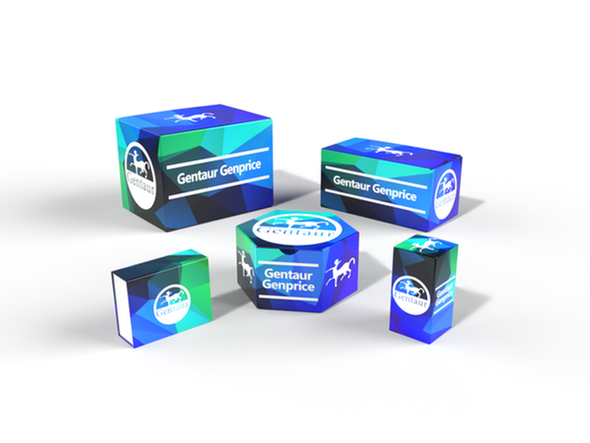Description
PEX5 Antibody | 19-855 | Gentaur UK, US & Europe Distribution
Host: Rabbit
Reactivity: Human, Mouse, Rat
Homology: N/A
Immunogen: Recombinant fusion protein containing a sequence corresponding to amino acids 1-260 of human PEX5 (NP_000310.2) .
Research Area: Signal Transduction
Tested Application: WB, IHC, IF
Application: WB: 1:500 - 1:2000
IHC: 1:50 - 1:200
IF: 1:50 - 1:200
Specificiy: N/A
Positive Control 1: SW480
Positive Control 2: ES-2
Positive Control 3: 293T
Positive Control 4: HepG2
Positive Control 5: MCF7
Positive Control 6: HeLa
Molecular Weight: Observed: 70-85kDa
Validation: N/A
Isoform: N/A
Purification: Affinity purification
Clonality: Polyclonal
Clone: N/A
Isotype: IgG
Conjugate: Unconjugated
Physical State: Liquid
Buffer: PBS with 0.02% sodium azide, 50% glycerol, pH7.3.
Concentration: N/A
Storage Condition: Store at -20˚C. Avoid freeze / thaw cycles.
Alternate Name: PEX5, peroxisomal biogenesis factor 5, FLJ50634, FLJ50721, FLJ51948, PTS1-BP, PTS1R, PXR1, OTTHUMP00000238192, OTTHUMP00000238193, OTTHUMP00000238194, OTTHUMP00000238195, OTTHUMP00000238353, OTTHUMP00000238354, OTTHUMP00000238356, PTS1 receptor, peroxin-5
User Note: Optimal dilutions for each application to be determined by the researcher.
BACKGROUND: The product of this gene binds to the C-terminal PTS1-type tripeptide peroxisomal targeting signal (SKL-type) and plays an essential role in peroxisomal protein import. Peroxins (PEXs) are proteins that are essential for the assembly of functional peroxisomes. The peroxisome biogenesis disorders (PBDs) are a group of genetically heterogeneous autosomal recessive, lethal diseases characterized by multiple defects in peroxisome function. The peroxisomal biogenesis disorders are a heterogeneous group with at least 14 complementation groups and with more than 1 phenotype being observed in cases falling into particular complementation groups. Although the clinical features of PBD patients vary, cells from all PBD patients exhibit a defect in the import of one or more classes of peroxisomal matrix proteins into the organelle. Defects in this gene are a cause of neonatal adrenoleukodystrophy (NALD) , a cause of Zellweger syndrome (ZWS) as well as may be a cause of infantile Refsum disease (IRD) . Alternatively spliced transcript variants encoding different isoforms have been identified.






